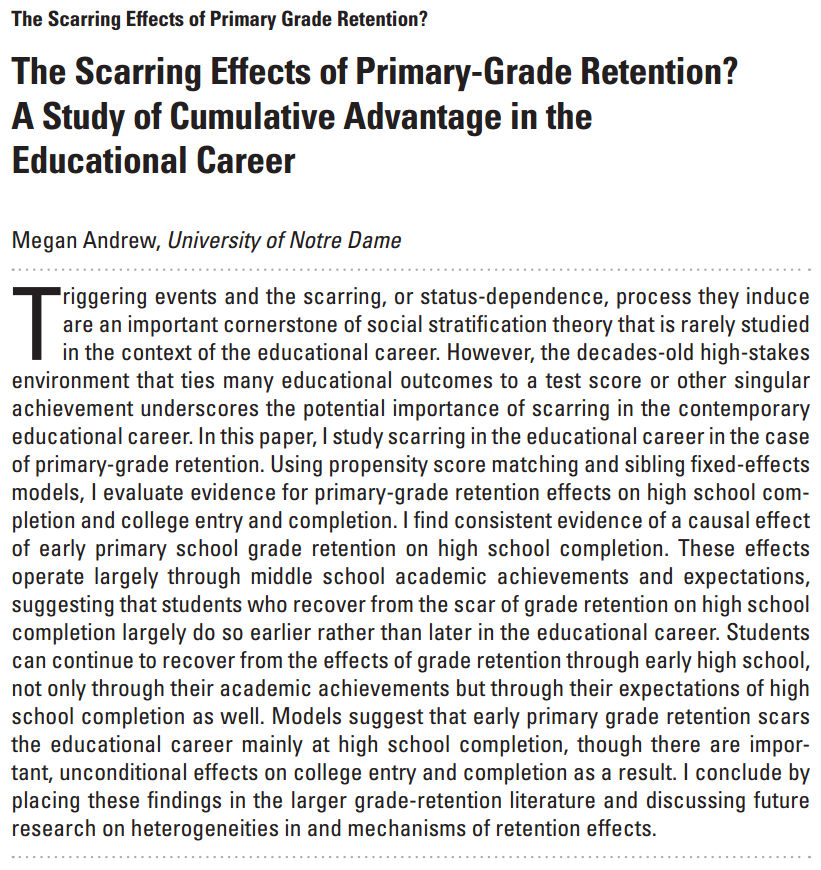Settling the Retention versus Mass Promotion Issue
It was the last fight between Po and Lord Shen. And the last dialogue was about scars:
Lord Shen: "How did you find peace? I took away your parents. Everything. I scarred you for life."
Po: "See, that's the thing, Shen. Scars heal."
Lord Shen: "No, they don't. Wounds heal."
Po: "Oh, yeah. What do scars do? They fade I guess?"
Lord Shen: "I don't care what scars do!"
Po: "You should, Shen. You gotta let go of that stuff from past, 'cause it just doesn't matter! The only thing that matters... is what you choose to be now."
 |
| Screen capture from YouTube video |
Do scars really fade? Words of wisdom are good and may guide us, but evidence-based research provides us with the facts so that we may act with a tangible basis.
One intriguing issue in basic education is the question of whether to retain or promote when a child does not meet basic expectations. In a previous article on this blog, "To Retain or Promote: Asking the Right Question", it is demonstrated that research is in fact ambiguous with regard to mass promotion versus retention. A recent study, for instance, shows that retained students in third grade outperform mass promoted students. This is very much in conflict with earlier studies that demonstrate the great harm retention causes. One objection against the older findings is that the studies fail to ask the question of whether promotion would have been better. How can one compare retention versus promotion when choosing one automatically precludes the other? The answer lies in using "matched pairs". This, of course, requires a large volume of data to find something meaningful. Apparently, this has been achieved by Megan Andrew of the University of Notre Dame:
The above study is published in the journal Social Forces. It involves about 9000 students. To match students, several factors which include race, gender, family income, parent's educational attainment, immigration status, IQ scores, are taken into account to predict a measure of likelihood to be retained. And the results are: Children who are retained in primary school are 60 percent less likely to graduate high school than children with similar backgrounds.

The problem is, Mr. de Dios, our present educational system dictates that mass promotion is in. If we fail a student, then it's a teacher factor...teacher's fault. Goodness! Pupils are not with the teachers the whole day. We can't monitor them the whole day. That's when the parents must monitor/follow up on their children's assignment/task. Thing is, do they?
ReplyDeleteThe study cited in the above post provides evidence against retention. Schools in Finland do not even have exams. Why is it necessary to give grades, in the first place?
ReplyDelete